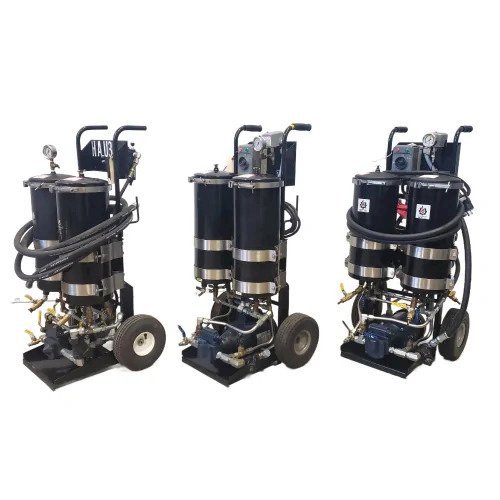What is a Hydraulic Filter? Understanding Hydraulic Filter Types and Their Applications

Hydraulic systems are the lifeblood of countless industrial and mobile machines, ensuring smooth and efficient power transmission. One of the most vital components of any hydraulic system is the hydraulic filter. But what is a hydraulic filter, and why is it so important?
What is a Hydraulic Filter?
A hydraulic filter is a device designed to remove contaminants and debris from hydraulic fluid. These contaminants—like metal particles, dirt, and sludge—can significantly damage sensitive components such as valves, cylinders, and pumps. By filtering out impurities, hydraulic filters maintain fluid cleanliness, improve system performance, and extend the life of hydraulic equipment.
Why Are Hydraulic Filters Necessary?
Over time, hydraulic fluid accumulates particles due to component wear or environmental exposure. Without proper filtration, these contaminants can:
-
Clog valves and restrict flow
-
Cause equipment overheating
-
Increase wear on seals and bearings
-
Lead to expensive system failures
That’s why choosing the right hydraulic oil filter types is essential for any maintenance or design strategy.
Hydraulic Filter Types
There are several types of hydraulic filters, each suited for specific applications and system requirements. Below are the most common hydraulic filter types:
1. Suction Filters
Installed before the pump inlet, suction filters prevent large particles from entering and damaging the hydraulic pump. While they typically have coarse filtration ratings, they serve as the first line of defense.
2. Pressure Filters
Located downstream of the pump, pressure filters are designed to withstand high pressures and protect sensitive components like servo valves. They offer fine filtration and are crucial in systems where cleanliness is critical.
3. Return Line Filters
These filters clean the fluid as it returns to the reservoir. Return filters are generally low-pressure filters that remove contaminants generated during system operation.
4. Off-Line or Kidney Loop Filters
Used in offline filtration units, such as filter carts, these filters provide continuous cleaning without interrupting the main system. They are ideal for conditioning fluids in large reservoirs.
5. In-Tank Filters
As the name suggests, these are located inside the hydraulic reservoir. They help filter the fluid before it enters or leaves the tank, offering additional protection.
Hydraulic Oil Filter Types by Media
In addition to placement, hydraulic filters also differ by the filter media used:
-
Cellulose Filters: Economical and biodegradable, but less efficient at fine filtration.
-
Glass Fiber Filters: Excellent dirt-holding capacity and superior filtration efficiency.
-
Stainless Steel Mesh Filters: Reusable and robust, ideal for high-temperature or harsh environments.
Choosing the Right Filter
When selecting a hydraulic filter, consider:
-
System pressure
-
Flow rate
-
Required filtration level (micron rating)
-
Contamination levels
Working with a trusted provider like Harvard Filtration ensures you get the most reliable and effective filtration solutions tailored to your needs.
Final Thoughts
Understanding the various hydraulic filter types is essential to maintaining efficient, reliable hydraulic systems. From suction and pressure filters to advanced off-line options, each filter plays a unique role in system health. Choosing the right hydraulic oil filter type helps minimize downtime, reduce maintenance costs, and improve overall equipment life.
What's Your Reaction?











